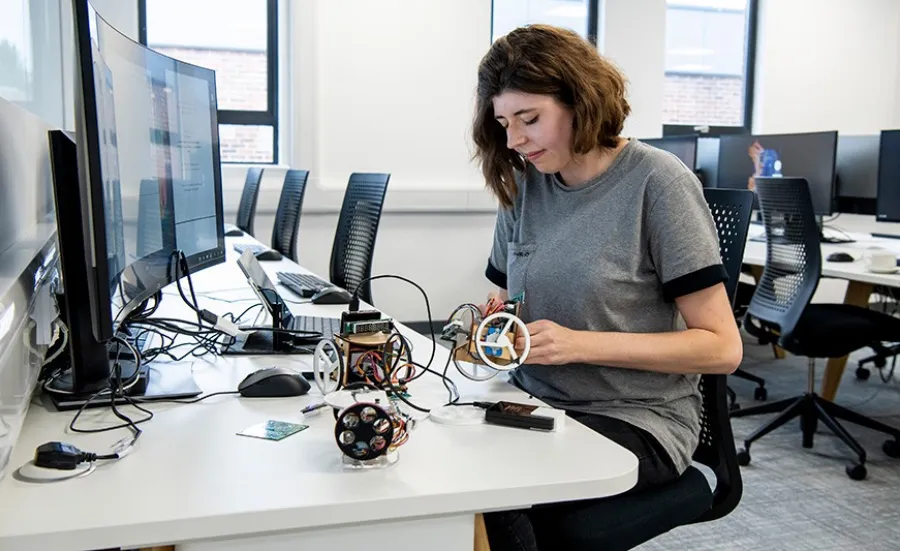Current research degree projects

Explore our current postgraduate research degree and PhD opportunities.

Explore our current postgraduate research degree and PhD opportunities.

This project aims to investigate fluid-structure interaction using travelling waves for propulsion and micro-pumping applications. It combines structural dynamics, fluid mechanics, and advanced numerical modelling to develop efficient, bio-inspired motion strategies for underwater vehicles, biomedical devices, and microfluidic systems.
This project aims to investigate nonlinear dynamic behaviour in space structures, focusing on light, flexible systems in extreme environments. It combines numerical modelling, analytical methods, and experimental validation to enhance structural resilience for space exploration and extraterrestrial colonisation in collaboration with the European Space Agency (ESA).
This project aims to develop advanced nonlinear damping mechanisms for space exploration and extraterrestrial colonisation. Combining numerical modelling, experiments, and compliant mechanisms, this research tackles regolith interactions and extreme conditions to improve structural resilience.
This project focuses on understanding and modelling the vibroacoustic mechanisms of early British pianos. The goal is to create virtual replicas of these historical instruments, with an emphasis on the design of hammers, strings, and soundboards, to preserve and appreciate their original sounds.
This PhD project aims to develop low-carbon, high-performance cementitious materials to combat marine corrosion and reduce global CO₂ emissions. Using advanced material characterisation techniques, this project explores microstructure evolution and long-term durability for sustainable ocean infrastructure.
Composite materials are at the forefront of airframe technologies successfully providing reliable and high performance aerospace structures. A key barrier to greater deployment of next generation composites for new and novel vehicle concepts is the time and cost associated with certification of new designs.
This project aims to develop advanced digital twin technology for space object re-entry monitoring, addressing multiphysics coupling and hybrid uncertainties. The project focuses on uncertainty quantification, robust model updating, and real-time data integration to improve re-entry prediction accuracy.